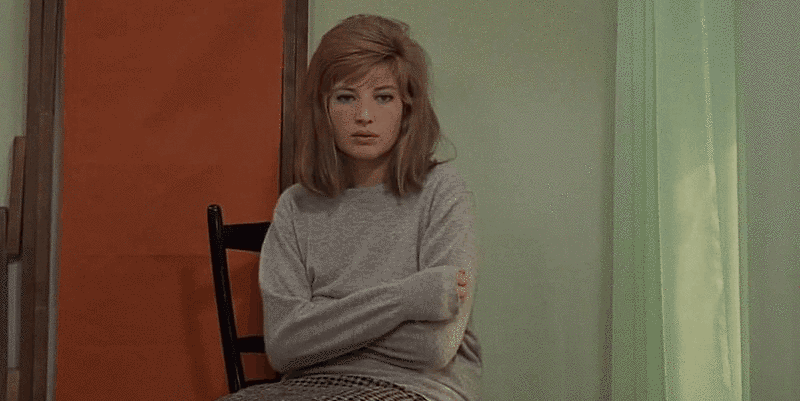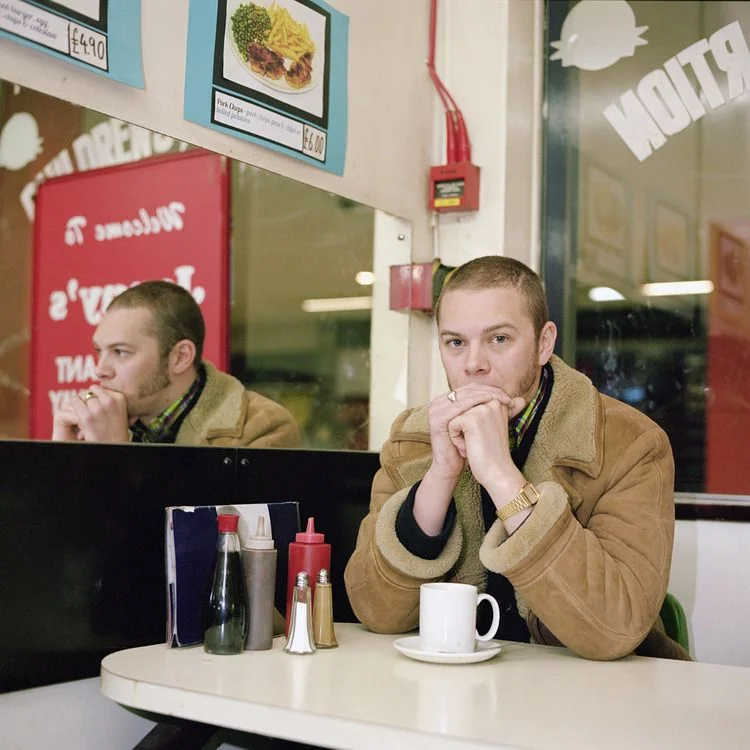Alana Celii
I remember how being in Alana Celii’s company always invited along a certain mysticism. Her large blue eyes that moved around surprisingly silent. Somehow they were strangely intangible, considering their overt intensity. She laughed a lot, or so it seemed, and every time I thought it felt genuine. I also remember Alana’s ever-present melancholia at whatever parties taking place somewhere downtown, or at those recurring get-togethers at her Brooklyn apartment. By using the word melancholia I don’t necessarily wish to attribute to a type of sadness. She wasn’t sad, she was awake. And within that awakeness, it was obvious that she constantly meditated her nearby environment. From corners of her kitchen, I’d often watch her take in entire scenes of people, of objects, bit-by-bit. Every moment seemed like an infinity to her, and that was beautiful. A similarly intimate process of absorption transitions into Alana’s photographs that typically cast vast landscapes of nature, naked and entire within their setting. Rarely are there people. When gazing upon those images, it’s difficult to not feel time pausing. There’s a temporary heat wave of loneliness, that’s never terrifying but desirable. The recordings of the eyes of Alana transmit an akin longing for silence, giving us back what most of us seemed to have forgotten: time. A brief dialogue about memory, being on the road, and the inevitable human necessity to return to nature.
For as long as I can remember, photography seems to have been a stable part in your life Why do you constantly return to your camera?
A lot of my practice focuses on the themes of memory and collecting. I'm interested in how our memories morph over time, and how a photograph, even though it is a documentation, is still subjective. What is pictured is not necessarily true.
In terms of documenting, that’s an interesting point how it doesn’t necessarily need to be ‘true.’ Would you say photography often exaggerates our memory of things?
Yes, at least for me, it can idealize, but it can also be shallow.
Memory is always there within an image.
Yes, exactly, but also with the rise of technology and the smart phone age, I think it’s one of memories biggest threats. Not only is it more rare to encounter the photograph as a physical object, but also we rely so much on the data that is in our devices. I find myself forgetting moments and looking at my camera roll to see where I was on a specific day. I’ve started to fill a notebook with lists of my day-to-day instead of relying on technology. It‘s terrifying how quickly I forget.
Nature seems to be another recurring subject-matter. What is it about nature that makes you continuously want to document it?
I go back to this quote by John Burrough's often: “I go to nature to be soothed and healed, and to have my senses put in order.”
Since I was a kid I’ve found a certain wonder in exploration. We moved often, and I found solace in exploring the new landscapes I was thrust into. When I was very little I would explore the construction sites in our neighborhood and photograph them with a 110 camera. Later, as a preteen, I would bike and photograph through the Tennessee countryside. The images were mostly of abandoned houses and forests covered in kudzu.
As an adult, I’ve become somewhat fixated on and inspired by grand landscapes. Especially those that seem other worldly. The first time I traveled west of the Mississippi, to what I truly consider the American West, we landed after dark. As much as I squinted, I could not see the Rockies through the inky darkness. I could, however, smell the pines.
Up until that point, the West had been propagated to me as sublime myth. It was the idyllic landscape. It was the landscape I would run towards—an escape from the memories of an East Coast childhood and a Southern adolescence. Jagged mountains with snow capped peaks, Joshua trees at sunset, the true idea of Americana, but also, loss and consumption—The Grapes of Wrath, route 66, a Stephen Shore photograph of wide roads lined with billboards and candy colored cars, Dave Hickey’s love of Las Vegas and how he feels at home in the neon.
When you look at a photograph, do you remember the smell of the place and time? What do your senses tend to remember?
Funny, I was thinking in response to your earlier question about memory, that my approach to photography can be somewhat Proustian.
Proust, who was also highly critical of the idea that one truly lives in the present moment, since the present is often a mixture of past memories and future anticipation, used photography as an apparatus in his writing. Brassaï, writing in “Proust and the Power of Photography”, states that he “very early [on] associated photography with a vanished past, with nostalgia, with the melancholy delights of memory."
Proust thought that the memories that photography invokes are shallow unlike the memories that the senses invoke, which physically transport you back to that time. However, I disagree with him. Because of the physicality of the photographic image, and because of my process in its literal creation, the memory itself becomes tactile--it can transport me back to the smell of the place or a song I was listening to. I have photographs from a trip to New Mexico that remind me of the smell of pinon wood, and the smokiness of it burning in fireplaces at night; from a road trip down the coast of California and the salty air in Big Sur; or driving through Joshua Tree at twilight and listening to Whitney Houston after a bad break-up.
What are other places you yearn seeing with your own eyes, and capturing it with the camera?
Patagonia, Japan, Alaska, Havasu Falls at the bottom of the Grand Canyon, to walk the El Camino alone, to camp in the badlands of North Dakota.
With these masses of accumulating image taking, pictures have in many ways lost their meaning. The inevitable course of fast-food culture. However, I’d consider you as one of the people who still approaches an image—its act of creation and final outcome—with expectation. Somehow there’s an innate necessity for them to exist. I think it’s because you hold onto its idea of memory, and not necessarily the act of documentation.
I agree, we are so inundated with hundreds of thousands of images daily. For better or worse, I think there’s now an inherent nostalgia with shooting film--even if it is currently making a comeback on a commercial level.
Because of my process--I still shoot film and print contact sheets in the darkroom--I am forced to slow down. Editing my work has always been a large part of my conceptual process. When I was a freshman in undergrad I saw Jason Fulford speak at a now defunct Barnes and Noble on 6th Ave. He spoke about how he would cut up his contact sheets into miniature sized images, and then rearrange his edit. Because of his influence, I’ve been editing that way for the last twelve years. ( Example A and Example B ).
By observing and making imagery of the natural world around me, I have become a collector--I am gathering together images whose subjects are often scattered or widespread. Like Jazz, these images exist through improvisation, syncopation, and rhythm. Through the editing process, their meaning is developed through their own fluidity and abstraction. Even though my imagery is rooted in memory, it is also my desire for the past to go away--for it to be manipulated. Through organization and curation, I am able to redefine its meaning and also time.
What I also love about your photographs, especially those of nature, you subtly remind us of the world’s beauty. There’s silence, yet momentum. It’s also interesting how most of them exhibit these vast landscapes, devoid of humans and their traces.
Beauty is a large driver, but I’m also captivated with how space is manipulated and constructed to reflect certain cultural values and practices. How do we manipulate space in regards to ownership? With photography, we are able to create new and multiple meanings within an image by layering symbolism. How does this affect what is true? I photograph spaces that represent a quietness that is provoked by decay and loss. Yes, these places lack the obvious presence of man, but the manipulation is still apparent.
Images courtesy of Alana Celii
interview LARA KONRAD
What to read next






